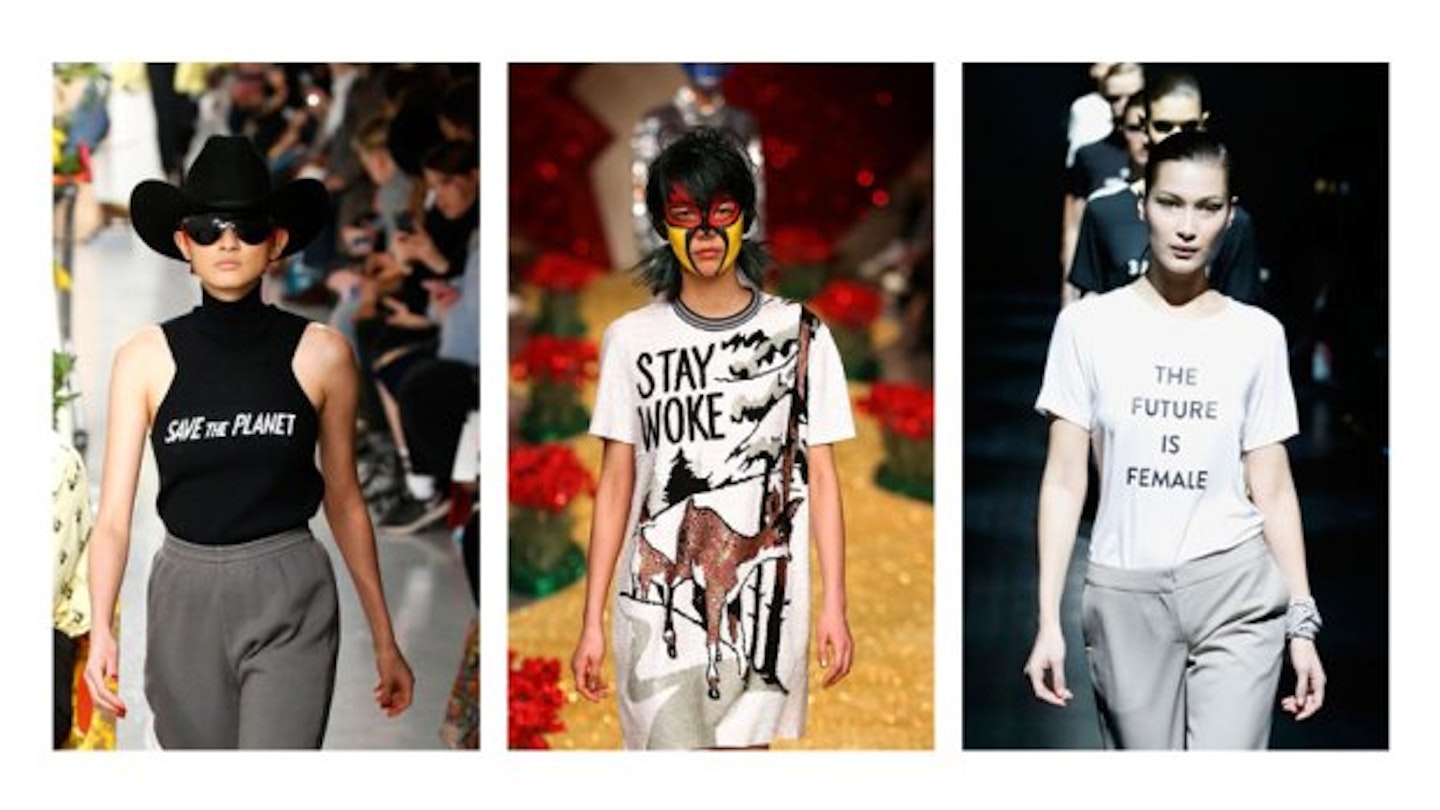With AW17 fashion season in full swing, it seems near impossible to avoid the subject of politics when discussing the runway shows and presentations. In a lot of ways it makes sense — with Brexit and the Trump presidency throwing the world into increased political turmoil, designers expressing their protest at our current political climate and taking a stand for what they believe in should, in theory, be a positive. However, with many houses expressing a new-found ‘wokeness’ comes an increased responsibility to practice what they preach, and it’s here that many of our beloved brands fall short.
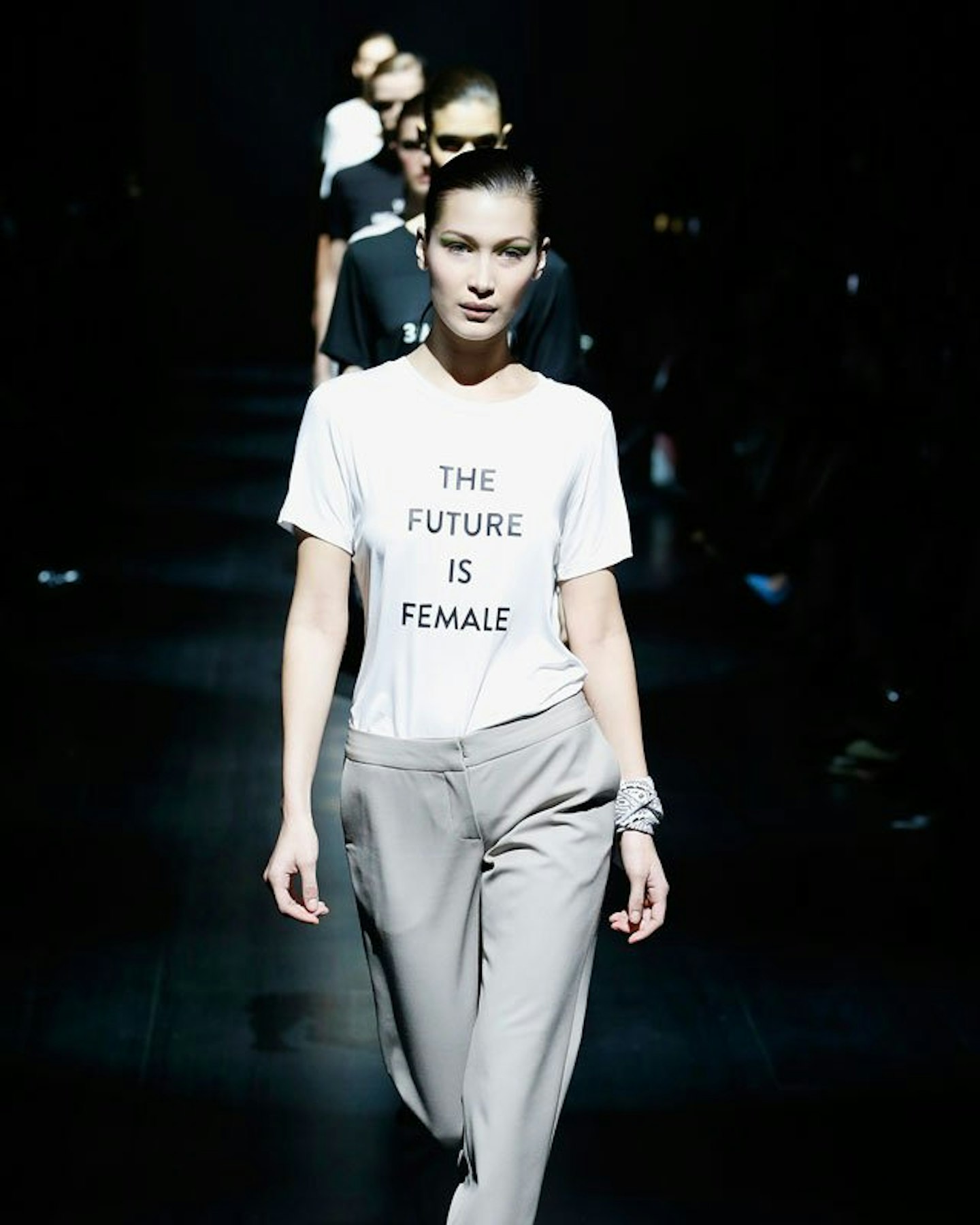
During New York Fashion Week, Prabal Gurung presented a t-shirt emblazoned with ‘The Future is Female’ on the runway. If the slogan sounds familiar, well that’s because it is — and not only because Cara Delevingne came under fire herself last year for attempting to bring her t-shirt bearing the same phrase to market. First produced in the ‘70s for New York’s first women’s bookstore, a new version of the t-shirt is now sold by indie clothing company Otherwild, with a guaranteed 25% of sale proceeds donated to Planned Parenthood. It’s immediately clear to see why a luxury label appropriating a slogan ingrained in the women’s rights community is problematic.
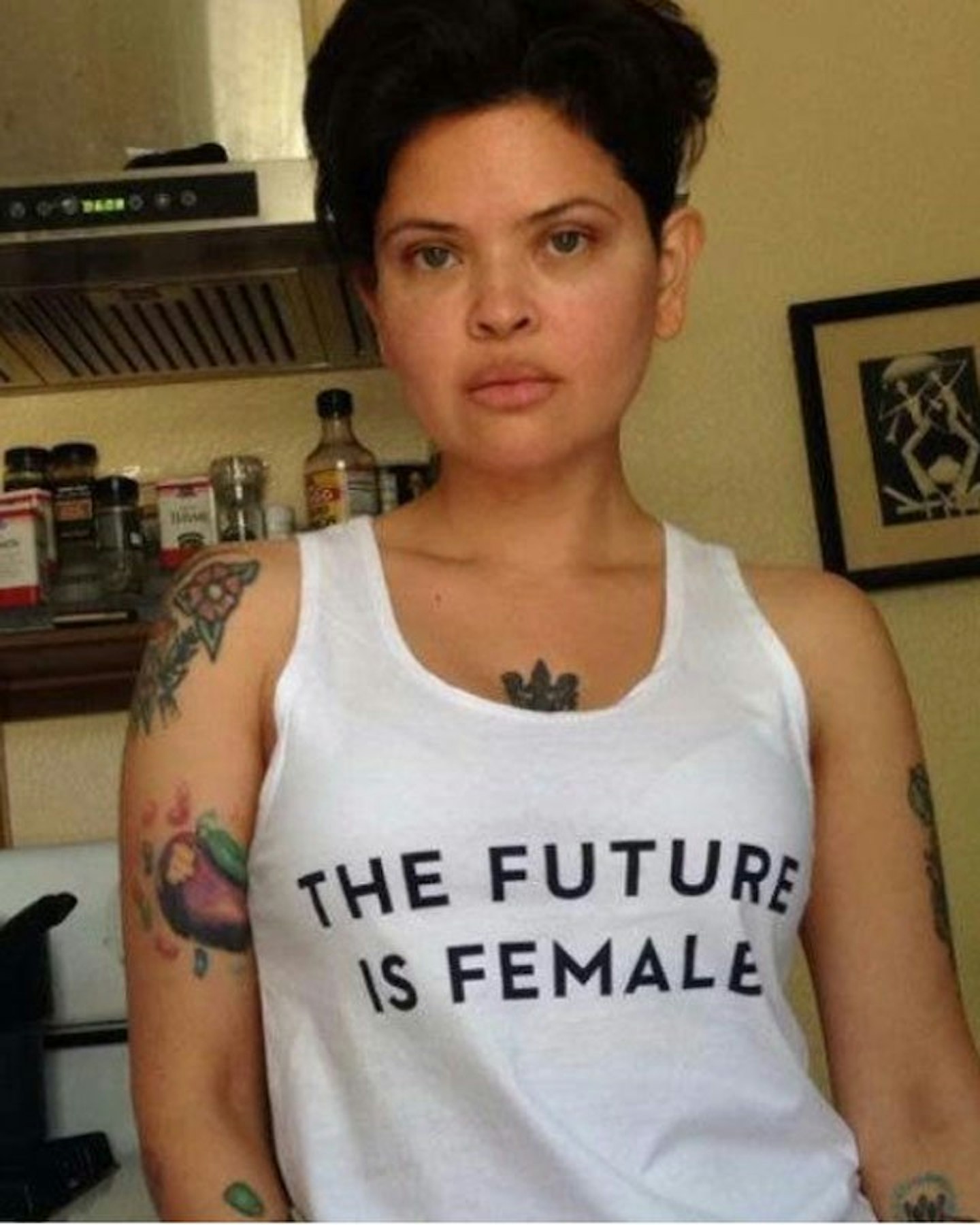
Gurung himself hasn’t commented on whether his label will be donating any profit to charitable causes, however, Rachel Berk’s from Otherwild told Paper Magazine the company was not made aware of Gurung’s use before the show itself. Saying, ‘Prabal Gurung appropriated the newly popularised design for his runway show [and] did not contact or credit Otherwild to share/discuss the FIF-inspired t-shirt for his current runway show... I'm not personally aware of any charitable contributions connected to his use of the t-shirt, nor his thoughts on feminism or related political, ethical, or artistic beliefs.’
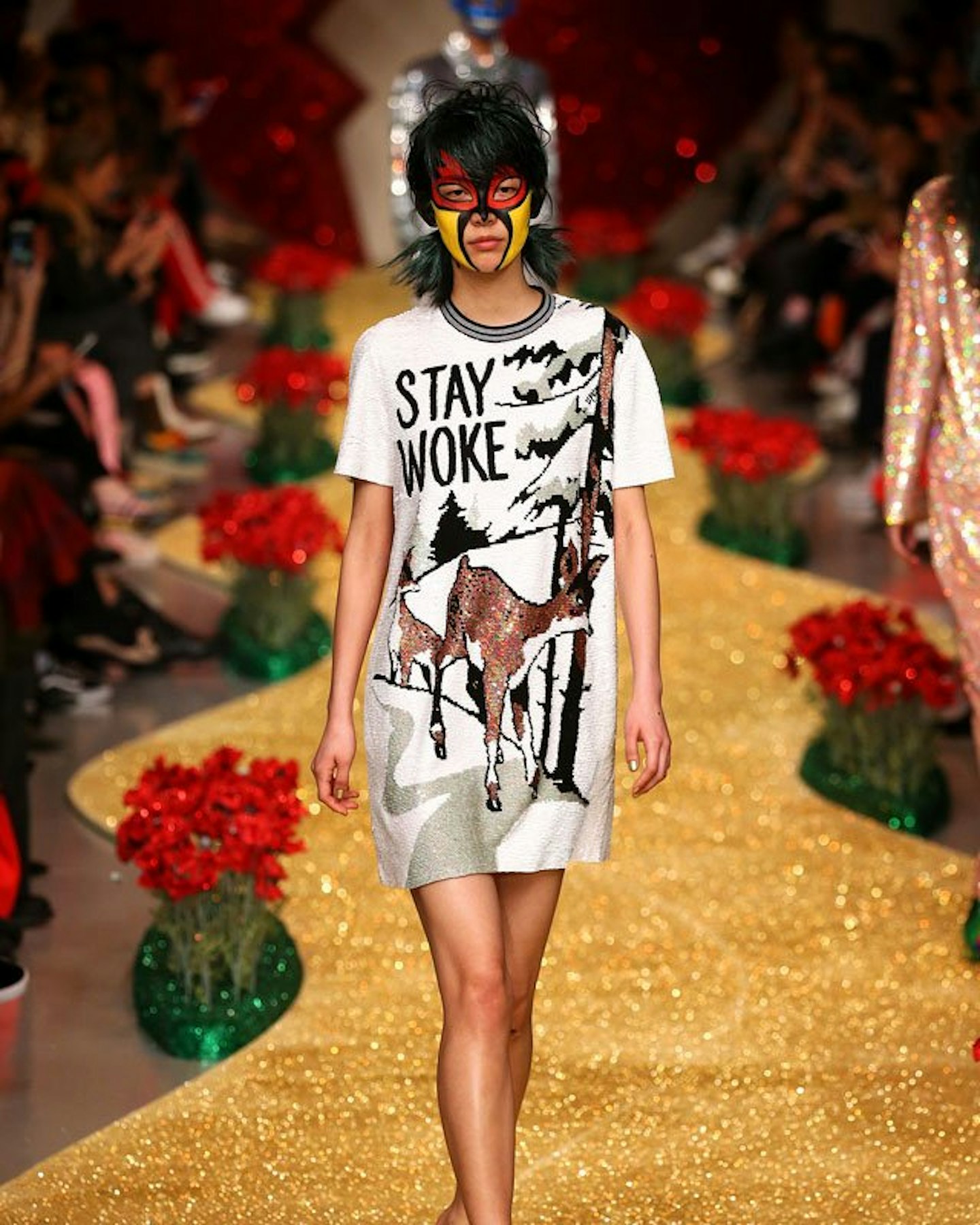
Back on home turf, this season’s London Fashion Week saw a slew of designers offer up their political visions for AW17. From Ashley Williams to Bora Aksu and Ashish — in our capital city it was the smaller, more independent designers who took charge in terms of peddling social messages and slogan t-shirts on the catwalk. From William’s pairing her ‘Save The Planet’ tank top with Instagram-environmental activist Glacier Girl to Ashish’s carry-on from his hugely popular ‘immigrant’ tee last season with a whole show of sequinned slogans: the London designers are arguably designing with their hearts — and not just their wallets — in mind.
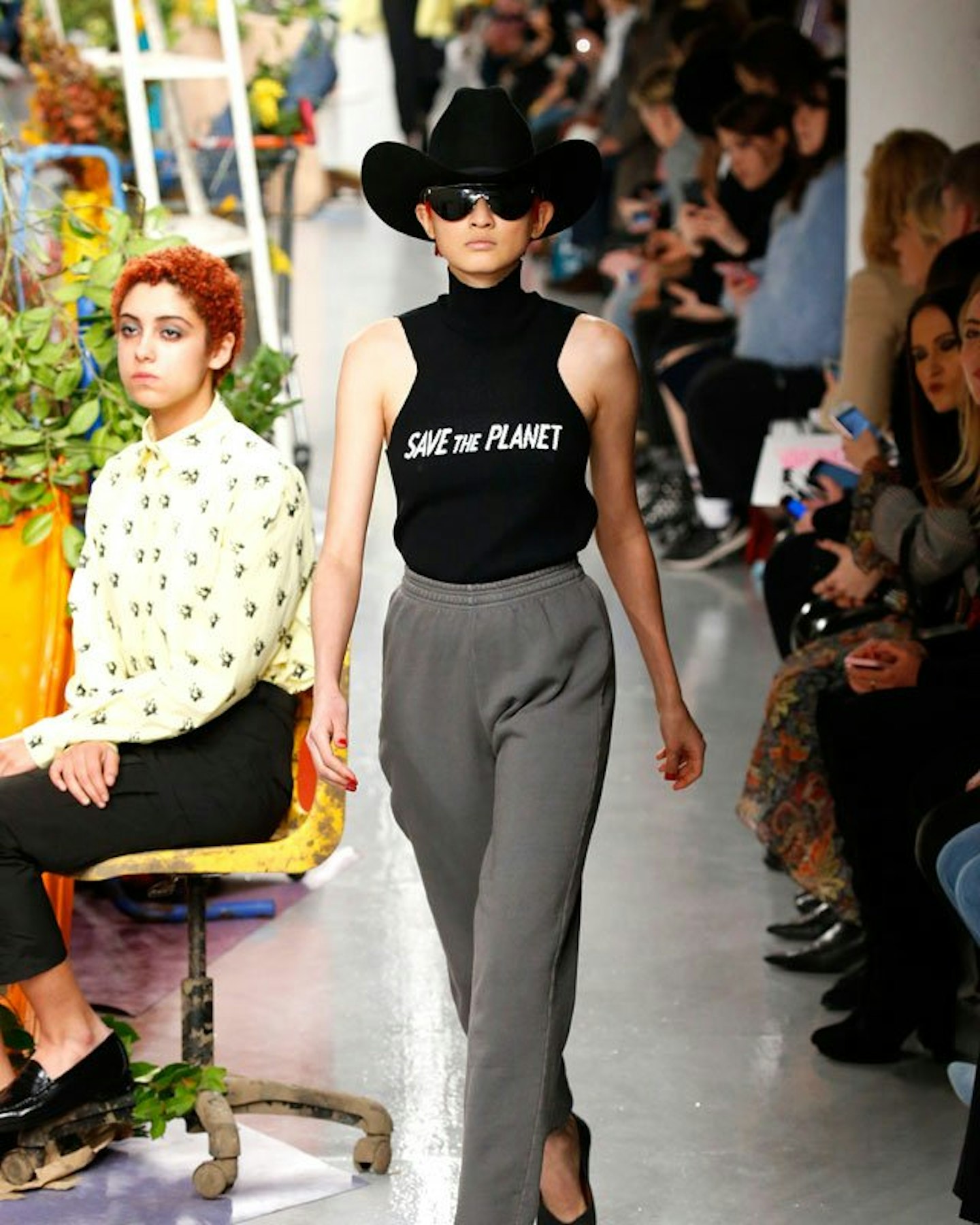
While the idea of ‘wokeness’ is increasingly saturating all parts of popular culture, political statements on the runway aren’t a new concept. Genuine political statements made through fashion are possible — and designers such as Vivienne Westwood, Katherine Hamnett and the now defunct label Meadham Kirchhoff have all used clothing as an authentic way to convey activist messages to the world at large. However, with the rise of fourth wave feminism has come a slew of labels and corporations hoping to cash in on the fight for women’s rights. Remember when Chanel sent their own — heavily criticised — version of a Slut Walk down the runway in 2014?
Fast forward three years and peddling a political message seems more of a not-so-savvy marketing technique than a genuine clapback at the current state of women’s equality. For her SS17 debut at French house Dior, Maria Grazia Chiuri featured her own message of female empowerment in the form of ‘We Should All Be Feminists’ t-shirts appearing as part of her first collection for the label. As Dior’s first female creative director, many read the feminist message as one to wave in a new era of female empowerment at the house. However, with diversity and inclusivity at the core of fourth wave feminist ideology, how progressive can a $700 t-shirt really be?

Fashion, although arguably improving, is still one of the most exclusive industries in the world, both in terms of price points and racial or body-type diversity. Last seasons SS17 New York Fashion Week saw models of colour represented on the runway just over 24 per cent of the time — meaning white models still dominated 76 per cent of the runway. It’s all very well vocalising messages of empowerment, but actions speak louder than words. In the case of luxury houses, many fall short when it comes to putting their money — or messages of self-love and diversity — where their mouths are. The slogan t-shirts produced by big brands, unlike their indie label counterparts, often serve to line the pockets of male CEO’s as opposed to progressing women’s equality in any larger way than simple lip service.
Before shelling out hundreds of pounds for a faux-feminist tee or supporting unethical production practises from high-street brands, shop closer to home for labels that say what they mean and do what they say. Take Birdsong, an ethical e-commerce platform with a strict no sweatshops, no photoshop policy. Or Clio Peppiatt, the London-based womenswear designer that alongside her luxury ready-to-wear label produces affordable, empowering slogan shirts and enamel pins with a cut of the profit donated to charities of her choice.
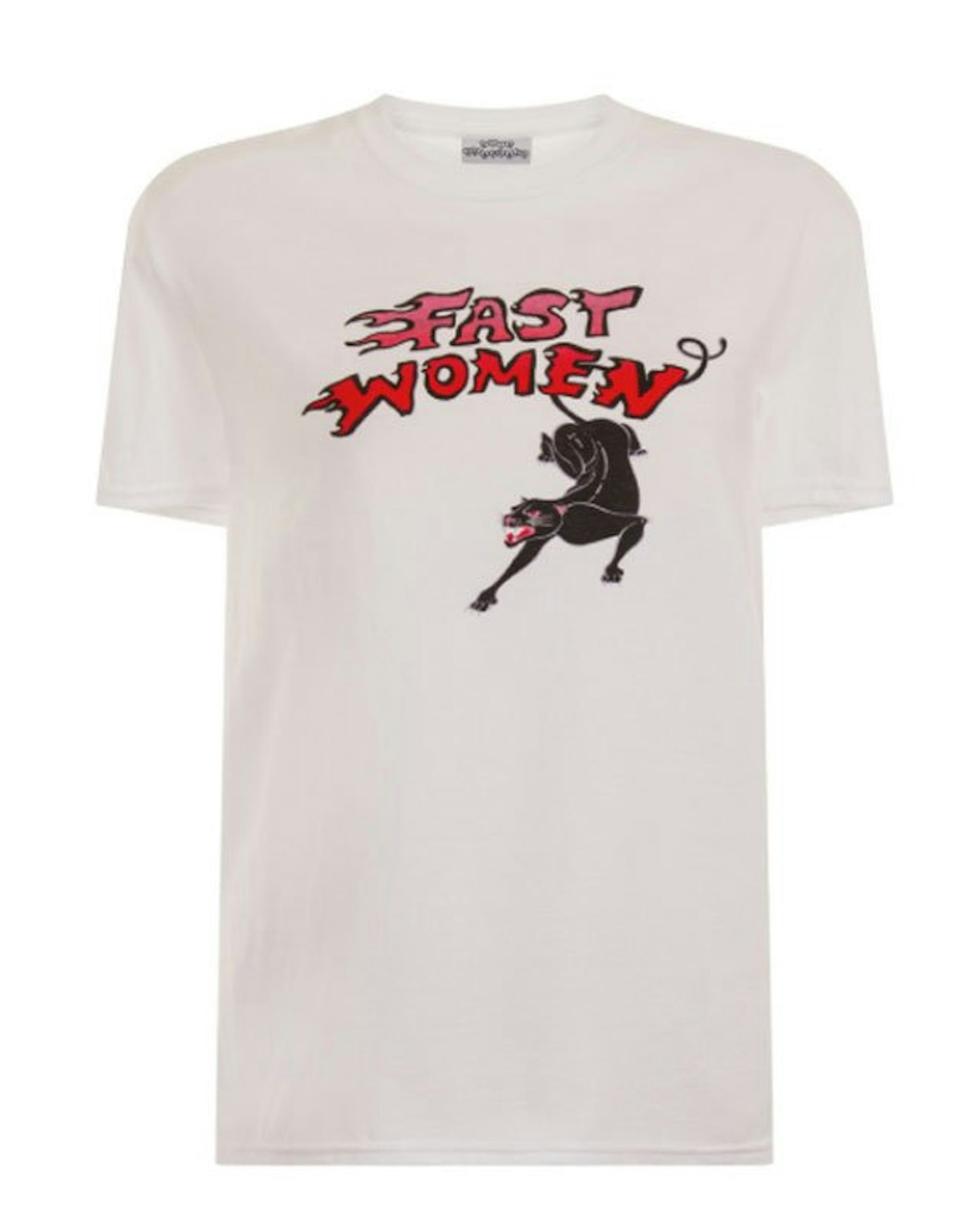
Because although any label or fashion brand using politics or social causes to sell their own clothing should have their motives examined: there are genuine, appropriate statements to be made in the context of fashion. In an increasingly far-right world, it seems only natural that we’d all hope to make a stand wherever we can in our lives — including our choice of outfit.
Like this? Then you might also be interested in:
The XXL-Sized Problem With Kylie Jenner’s ‘Thick' Collection
Follow Ione on Instagram @ionegamble
This article originally appeared on The Debrief.
